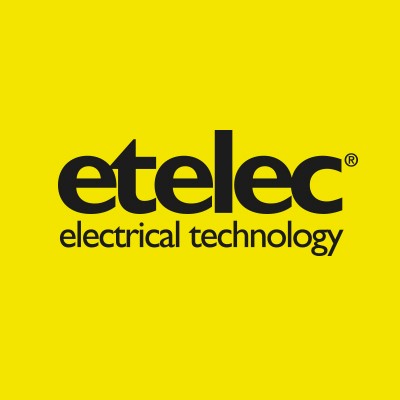

Etelec Italia S.p.A. Società Benefit

1.6
Metropolitan City of Naples, Italy
June 2025
Electrical equipment
Manufacturing
Argentina,
Aruba,
Australia,
Bahrain,
Belgium,
Bulgaria,
Chile,
Colombia,
Croatia (Hrvatska),
Cyprus,
Czech Republic,
Estonia,
Finland,
France,
Germany,
Greece,
Indonesia,
Ireland,
Italy,
Jordan,
Latvia,
Lebanon,
Lithuania,
Morocco,
Norway,
Peru,
Philippines,
Poland,
Portugal,
Qatar,
Saudi Arabia,
South Korea,
Spain,
Sri Lanka,
Sweden,
Switzerland,
United Arab Emirates,
United Kingdom,
United States
ETELEC ITALIA S.p.A. Società Benefit è un’azienda italiana operante nello sviluppo e nella produzione di soluzioni per la connessione, giunzione, isolamento e protezione dei cavi elettrici in bassa e media tensione, nonché di riempitivi isolanti (gel, resina poliuretanica, resina siliconica). Con un’esperienza pluridecennale e una forte vocazione all’innovazione, Etelec è diventata un punto di riferimento per i professionisti dell’impiantistica elettrica, grazie a una gamma completa di prodotti affidabili, sostenibili e ad alte prestazioni. Fondata con l’obiettivo di coniugare tecnologia e responsabilità, l’azienda ha costruito nel tempo un modello industriale in cui efficienza, qualità e attenzione all’ambiente si integrano in ogni fase del processo: dalla progettazione alla produzione, dalla logistica alla relazione con il cliente. Il successo di Etelec si fonda su un forte impegno nella ricerca e sviluppo, che permette all’azienda di adattarsi alle esigenze del mercato e proporre soluzioni innovative in linea con i più alti standard tecnici e normativi. Tutti i prodotti sono pensati per garantire durabilità, sicurezza e facilità di installazione, riducendo l’impatto ambientale e migliorando l’efficienza degli impianti.
Overall B Impact Score
Governance 17.8
Governance evaluates a company's overall mission, engagement around its social/environmental impact, ethics, and transparency. This section also evaluates the ability of a company to protect their mission and formally consider stakeholders in decision making through their corporate structure (e.g. benefit corporation) or corporate governing documents.
What is this? A company with an Impact Business Model is intentionally designed to create a specific positive outcome for one of its stakeholders - such as workers, community, environment, or customers.
Workers 25.5
Workers evaluates a company’s contributions to its employees’ financial security, health & safety, wellness, career development, and engagement & satisfaction. In addition, this section recognizes business models designed to benefit workers, such as companies that are at least 40% owned by non-executive employees and those that have workforce development programs to support individuals with barriers to employment.
Community 14.1
Community evaluates a company’s engagement with and impact on the communities in which it operates, hires from, and sources from. Topics include diversity, equity & inclusion, economic impact, civic engagement, charitable giving, and supply chain management. In addition, this section recognizes business models that are designed to address specific community-oriented problems, such as poverty alleviation through fair trade sourcing or distribution via microenterprises, producer cooperative models, locally focused economic development, and formal charitable giving commitments.
Environment 20.0
Environment evaluates a company’s overall environmental management practices as well as its impact on the air, climate, water, land, and biodiversity. This includes the direct impact of a company’s operations and, when applicable its supply chain and distribution channels. This section also recognizes companies with environmentally innovative production processes and those that sell products or services that have a positive environmental impact. Some examples might include products and services that create renewable energy, reduce consumption or waste, conserve land or wildlife, provide less toxic alternatives to the market, or educate people about environmental problems.
Customers 3.5
Customers evaluates a company’s stewardship of its customers through the quality of its products and services, ethical marketing, data privacy and security, and feedback channels. In addition, this section recognizes products or services that are designed to address a particular social problem for or through its customers, such as health or educational products, arts & media products, serving underserved customers/clients, and services that improve the social impact of other businesses or organizations.